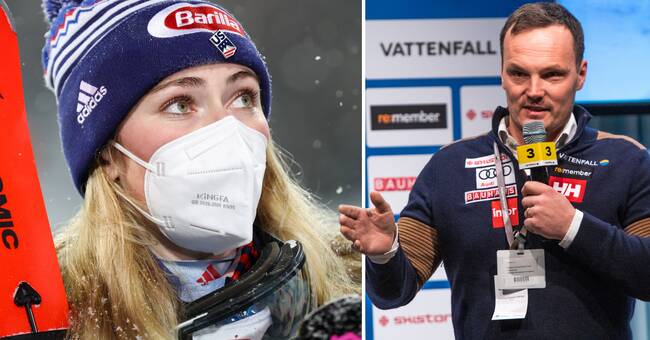Cortina d'Ampezzo has been more or less closed so far this winter.
Now the ski resort will suddenly be filled with a couple of thousand skiers, leaders, officials and journalists.
However, it will be a World Cup without an audience and with a rock-hard covid-19 regulations.
- It is extra careful now before the World Cup.
We needed to do a pcr test ten days before we arrived, one three days before, one the same day we arrived and then every third day at the WC, says Swedish skier Lin Ivarsson.
- The tests are a bit unpleasant sometimes.
But you have to put up with that.
The ski areas in northern Italy were among the hardest hit when the covid-19 pandemic took off in earnest in Europe a year ago.
But the World Cup organizers in Cortina d'Ampezzo did not get a hearing for the desire to postpone the championship, which will also be a genre rehearsal before the alpine competitions during the 2026 Winter Olympics.
Instead, there is a great symbolic value in the Alpine World Cup being lost, according to Gian Franco Kasper, outgoing chairman of the international ski association Fis.
- I can not remember an organizer who has had to handle as many challenges as Cortina for us to be able to be here for the next two weeks, he says according to the Austrian news agency APA.
A lifeline?
In the Alpine World Cup, the heavily revised competition program - under sharp restrictions and without an audience - has been able to be carried out much as planned.
But it has happened at a high price in the form of reduced revenues and increased expenses.
For many involved, the World Cup with its TV and sponsorship money therefore comes as something of a lifeline, according to Markus Waldner, who is Fi's competition manager on the men's side.
- This money is then sent on to the unions, so that we can survive the season, he says.
According to Tommy Eliasson Winter, alpine manager at the Swedish Ski Association, the most important thing so far has been that the World Cup has been completed.
- The WC is certainly important for the organizers and for Fis.
Of course also for us in the long run.
But I would rather say that the lifeline for all of us was that we were able to complete the World Cup, he says.
"Extreme measures"
However, it has cost money, both financially and logistically.
To reduce the risk of infection, the number of trips home to Sweden has been minimized, while the hauliers and leaders have lived in single rooms to a much greater extent than normal.
In addition, the logistics around the regular covid tests have caused costs to skyrocket.
- We have cut off everything that is called social togetherness that is not absolutely necessary.
These are extreme and expensive measures, says Tommy Eliasson Winter.
- Then we have the testing on it.
I would guess, if we do not count on lost revenue, that our extra costs will land at around two million kroner for this season.

